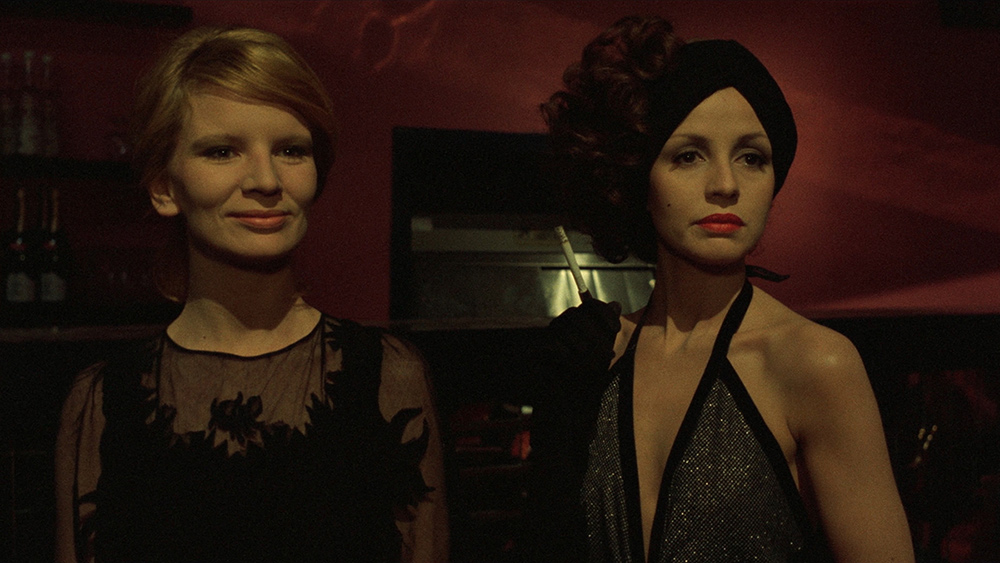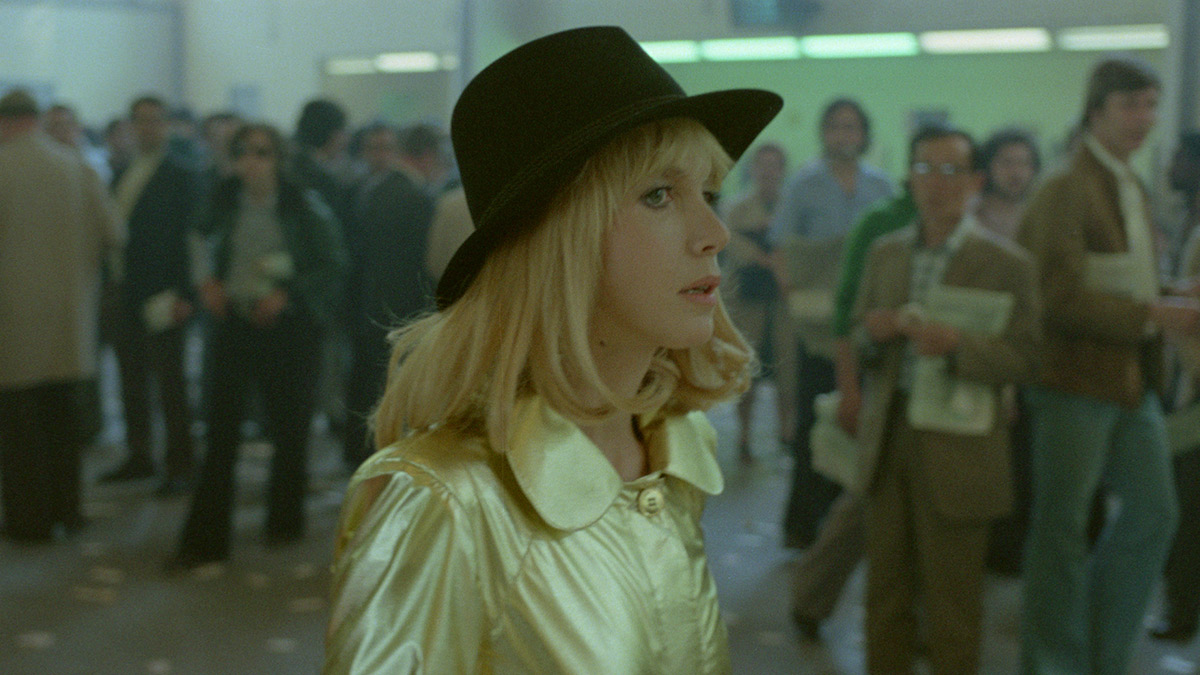2022.04.10
Juliette Berto and Bulle Ogier
Prior to filming "Duelle," the cast watched "The Seventh Victim" (1943) directed by Mark Robson as a reference work. The theatrical way in which Jacqueline (Jean Brooks) walks down the street at night, wearing a fur coat that is so striking that it is hard to forget once you see it, is somehow connected to the way the actors walk in "Duelle." Brooks' appearance in this film is also very similar to Berthe, who played the Moon Woman. Furthermore, the depiction of a satanic ritual and the homosexual theme that is said to be an underlying metaphor for it also connect these two completely dissimilar works. By referring to the noir direction of "The Seventh Victim" and trying an experimental approach to the actors, Rivette reinvents "a new ritual."
The creation of this new ritual was completed with the mentorship of two actors with a deep understanding of Rivette's films: Juliet Berto and Bulle Ogier. Berto made her film debut in Jean-Luc Godard's A Few Things I Know About Her (1967), and went on to star in a succession of Godard's masterpieces, including La Chinoiserie ( 1967), Weekend (1967), and the works of Dziga Vertov's group. Her name is even used as the title of Claude Miller's beautiful short film, Juliet in Paris (1967).

"Duelle" © 1976 SUNSHINE / INA.Tous droits réservés.
Berto could have had a brilliant career in the mainstream, but she appeared in a succession of films by avant-garde filmmakers, including Rivette, Alain Tanner, Glauber Rochat, Pierre Zucca, and Robert Kramer. As a filmmaker, she also made three feature films. Her second film, Cap Canaille (1983), is a masterpiece worthy of being placed alongside Leos Carax's Les Blood (1986), a contemporary of hers. And the trance-inducing dance scene in her third film, Havre (1986), proves that Juliette Berto was the true successor to Jacques Rivette. However, Berto passed away at the young age of 43. Anne Wiazemsky, who co-starred with her in La Chinoiserie , said of Berto's passing, "It was like losing two sides of the same coin." *2
Bulle Ogier was active in Marc O's avant-garde theater company. Rivette was one of the audience members. Ogier's superb stage performance exploded in Marc O's "Idols" (1968). For "Mad Love" she worked with Rivette, bringing together fellow theater mates Jean-Pierre Calfond and Michel Moretti. Even while she was still a member of the theater company, Ogier would go to the cinema almost every day to learn the gestures of actors.
In Manoel de Oliveira's O meu caso (1986), he brilliantly embodies the eye movements and gestures of a silent film comedian. Like Berthe, Ogé is a "world traveller" who shares the same will as avant-garde filmmakers, and can even be considered a pioneer in this field. Starting with Mad in Love, which he declared to be the best job of his acting career, he has appeared in many of Rivette's films, but his co-starring with Rivette's daughter, Pascal Ogé, in Les Bridges du Nord (1981) is unforgettable. This masterpiece, which depicts the streets of Paris as a board The Game, is a beautiful sublimation of Rivette's suggestion that "all films are documentaries about actors."*1
The androgynous woman held by Berthe and the supernatural, fairy-like presence of Ogier. These two mythical figures from the history of cinema confront each other in Rivette's provocative space. The story that the inspiration for "Duelle" was hearing about an Italian play in which the roles of men and women are reversed is highly suggestive.


